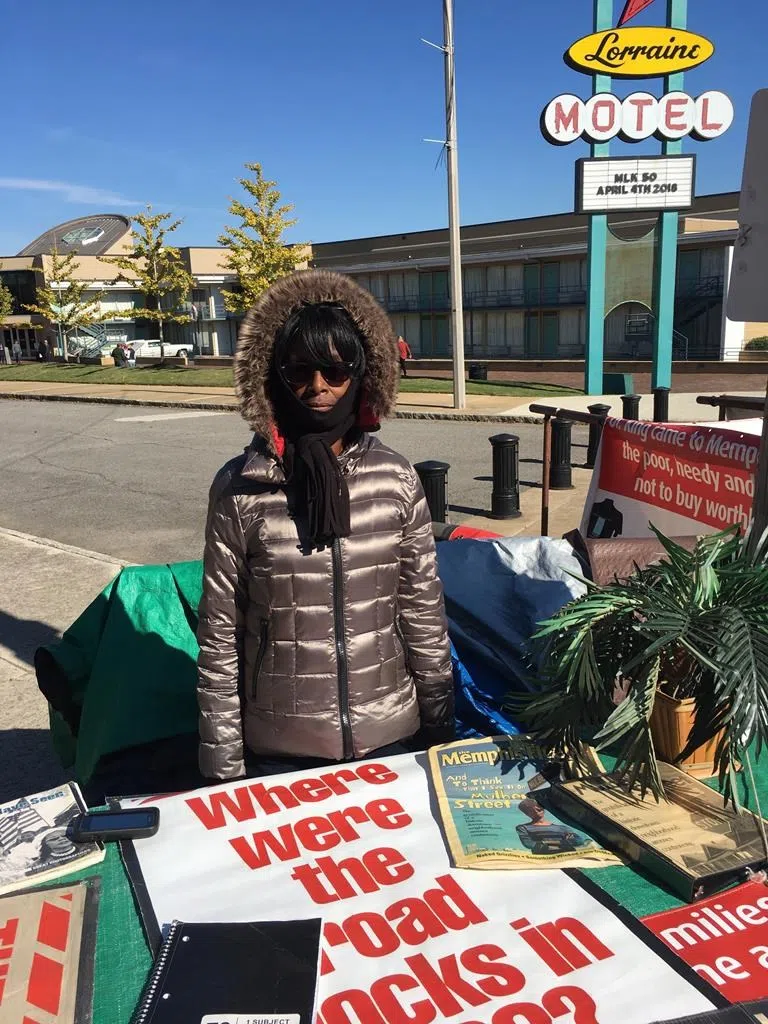
Martin Luther King: 50 years later, his mission not quite accomplished
WASHINGTON — Just across the street from the scene where Martin Luther King Jr. was murdered 50 years ago Wednesday, a woman has stood vigil, day after day, for several decades, protesting against the site becoming a museum.
Jacqueline Smith was the last resident of the Lorraine Motel in Memphis until she was evicted, carried out sobbing in 1988 by four sheriff’s deputies who were clearing the space for a civil-rights memorial.
She vowed to camp out on the sidewalk, and has. She stands just off the phantom path of that fatal bullet, fired from a rooming house behind the motel where a sniper lurked on April 4, 1968.
“Put an end to gentrification in Memphis today,” says one of her protest signs, which adds: “My aim is to relocate (the museum) … and establish the Lorraine Motel as a living testimony to Dr. King’s dream — shelter for the homeless, assistance for the needy.”


